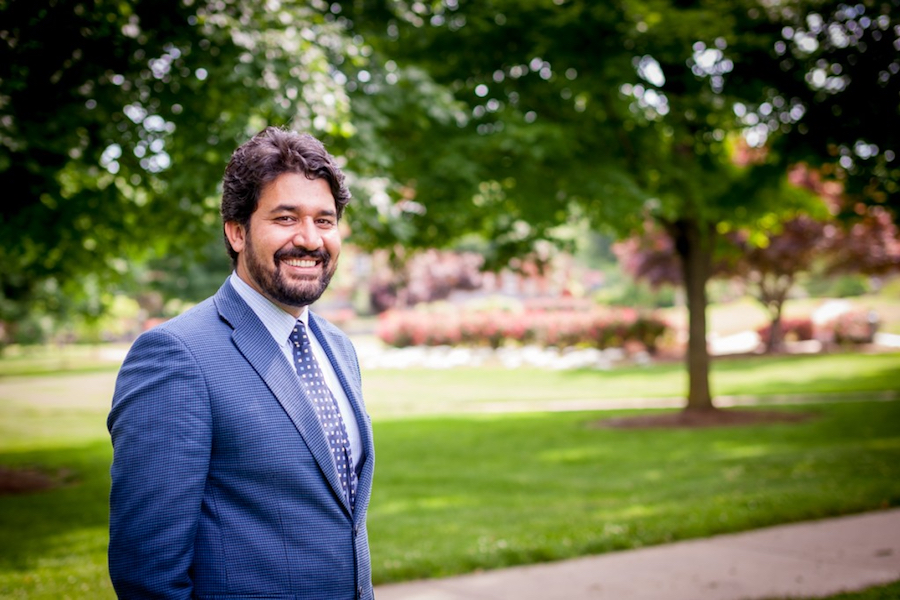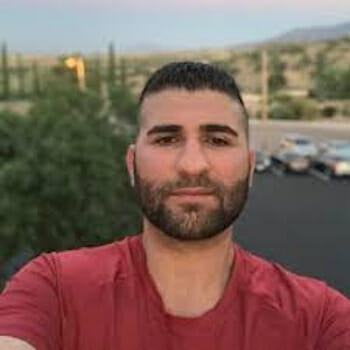
Culture
A Conversation with Farshid Hakimyar
One of the things that continue to inspire me and endow me with optimism for the future of Afghanistan is the devotion of the country’s young generation to peace and conflict resolution. Tormented by many years of war and violence, they are in the pursuit of a peaceful and democratic future. In addition, they have been active agents of change in the Afghan society. Their ubiquity and influence pervades all spheres of life: from the establishment of private schools and universities to the creation of organizations aimed at building a strong civil society.
Farshid Hakimyar is one such inspiring individual. Born in Kabul, Afghanistan, and educated in the US, he acts as the Founding Director of the Afghanistan Organization for Strategic Studies (AOSS). Along with other like-minded individuals, he has also co-founded a few non-profit organizations throughout Afghanistan. To have a share in the establishment of a few initiatives is living for some purpose. I recently had the opportunity to talk to him about his work and the way forward in Afghanistan. Below is my interview with him.
You have founded the first think tank concerned with strategic issues and development in Afghanistan. It is quite an impressive and unprecedented initiative. How did you come to create such an organization? What are some of the activities you are focusing on?
Afghanistan has been at war for decades. While many improvements in various spheres have been made in the last decade, the country still continues to suffer from political instability and economic underdevelopment.
I founded the Afghanistan Organization of Strategic Studies with the emphasis on three key policy research themes: security and defense analysis, foreign relations of Afghanistan in the region, and socio‐economic development. My team and I are primarily concerned with the provision of sound policy recommendations to the national and international stakeholders in Afghanistan. Furthermore, our agenda has been to supply a trenchant analysis of Afghanistan’s historical, social, and cultural understandings to outside parties serving in the country.
How do you define “strategy”?
May I venture to say that strategy is as old as humanity? In order to succeed in any initiative, political and business leaders must have clear and defined objectives. However, the road to the materialization of these plans is often bumpy, and we are bound to come across colossal failures and grand disappointments sometimes. Such a situation in which our plans get frustrated is when we need a strategy. Any individual can run a successful business or an effective political organization. But what happens when things go south and all of a sudden we find ourselves in the midst of a messy situation? Few people can respond to a crisis in a way that can contain and prevent it from devolving into a catastrophe.
The main reason so many political and business leaders fail in their endeavors is a lack of a strategy. Therefore, a strategic thinker or a leader with a strategic vision is someone who is endowed with courage, strong intellect, and unfailing foresight.
Afghanistan is undergoing many changes and transformations at the moment. How do you assess the security situation in light of the U.S. troops’ exodus?
I am optimistic about the future of Afghanistan. I believe the country will continue to make significant progress in the years to come. However, as you have already noted in several places, money and resources constitute the main concerns after the United States leaves Afghanistan. Unfortunately, Afghanistan is still highly dependent on foreign aid.
According to Dr. Omar Zakhailwal, Afghanistan’s minister of finance, sixty-five percent of the country’s national budget is paid through foreign aid. If such donations are discontinued, how will the government survive? We have almost an army of a half a million people whose funding and training is heavily dependent on NATO and the United States.
The Afghan army is capable of carrying out successful military operations. However, if the Bilateral Security Agreement between Afghanistan and the United States is not signed by the end of 2014, concerns for the future will loom large for obvious reasons.
You just attended a conference organized by Prof. Nazif Shahrani and sponsored by the Ostrom Workshop in Political Theory and Policy Analysis at Indiana University Bloomington. The program focused on assessing the impact of 35 years of wars and violence on social institutions in Afghanistan. Why do you think institutions are so important to political stability and economic development?
Africa is the richest continent in the world. It is endowed with all sorts of resources. However, it does not enjoy much economic development or political maturity. Why? Simply because it has failed to establish effective political and economic institutions. Many countries are poor around the world not because they lack natural resources, but because they lack institutions. In brief, institutions are important because they are of fundamental significance to economic growth in a society. This is not to say that economic growth cannot take place without the presence of institutions. It can, and China is a great example of that. However, to sustain any kind of growth, we need institutions.
In a few weeks, Afghanistan will inaugurate a new president. In your view, what should be the new leader’s priorities in order to institute reforms that can help bring justice and order to Afghanistan?
I am a Burkean. I believe in gradual change. Nothing of significance and grandeur can happen overnight, and if it does, its results are not always positive. Revolutions are one such example of a sudden change. The next leader must set in motion policies and changes upon which the next generation of Afghan leadership can build. However, reforms in the fields of education, taxation, and law must happen. These changes will help nudge Afghanistan toward a bright future. Afghanistan must do everything it can to detach itself from foreign aid and create a self-sufficient economy. Sixty percent of our population is under 20. We are one of the youngest countries in the world. Henceforth, there is a great potential in the country. The main thing for the next leader must be to find ways of exploiting this untapped potential.
Having established yourself a remarkable leader at such a young age, what do you think makes a great leader?
Belief, vision, and sincerity of heart are key components of a great leader. Leaders are rarely born. Everyone has the capacity to become a leader. Most of us human beings have dreams but few of us work hard to convert them into realities. I have always thought passion must be a key trait of a good leader. Khalil Gibran once wrote: “rest in reason and move in passion.” We must be realistic about our limits but never fail to ignite passion in the hearts of others to work together and move forward toward a brighter future.
The war of Afghanistan constitutes that US’s longest war in its history. What are some of the United States’ major successes and failures in Afghanistan?
The American people have made many sacrifices in Afghanistan. And Afghans are indebted to their efforts and sacrifices. The removal of the Taliban regime would not have been possible without the United States. Many improvements, especially in the fields of healthcare and education have been made. Millions of Afghan girls are now able to go to school. That is a significant achievement. However, the United States has lacked a clear strategy in fighting the enemies of civilization. While it has effectively pursued and eradicated the key elements of al-Qaeda and the Taliban in Afghanistan, it has failed to dissuade the Pakistani government from stopping its support of the Taliban and other terrorist networks in the region. Until that happens, I believe most of its activities against the Taliban in Afghanistan will be futile.

